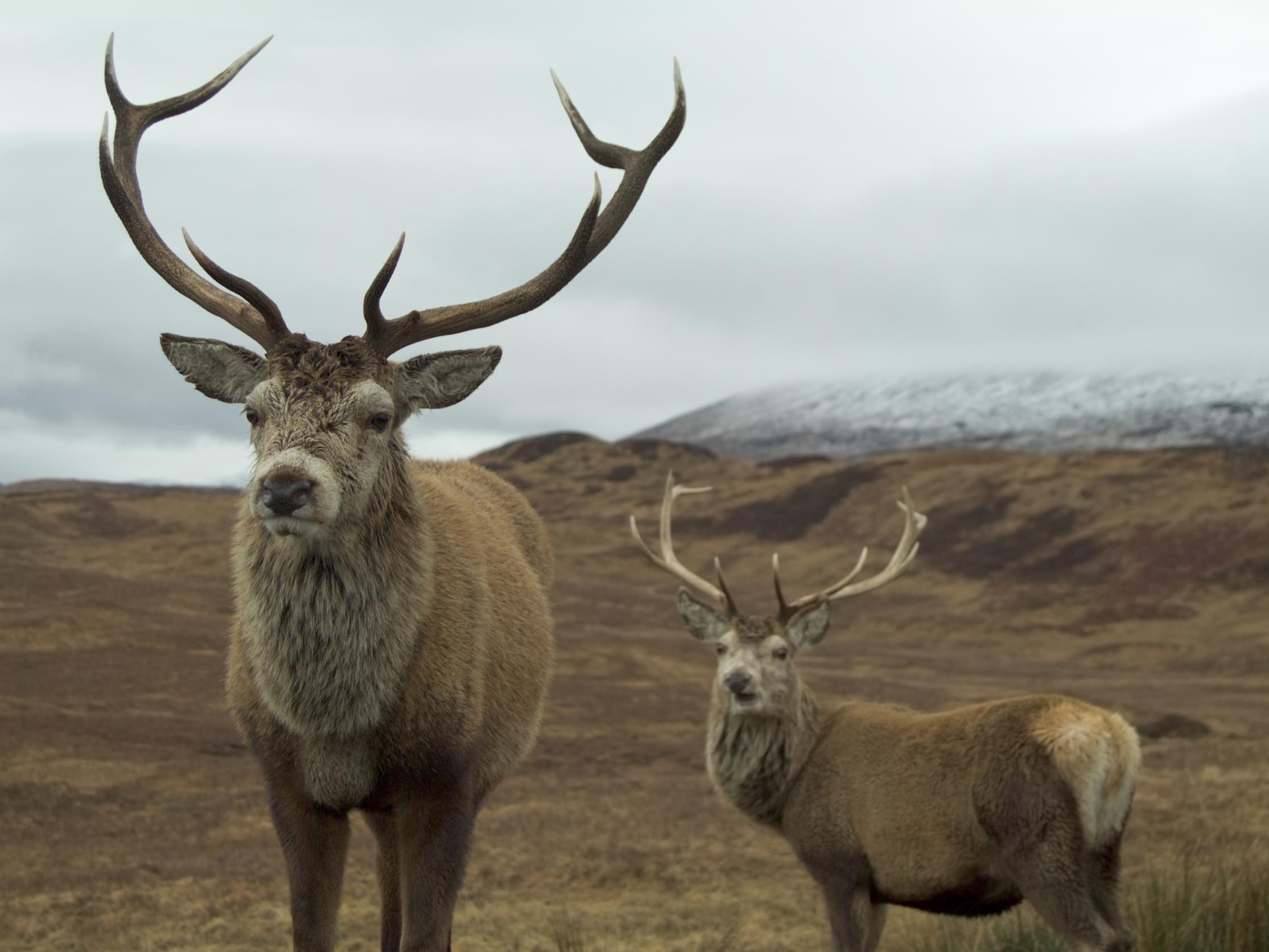Scotland urged to license grouse shooting, manage deer populations and preserve fishing to boost wildlife
RSPB, Scottish Wildlife Trust and WWF Scotland say reversing decline in nature will bring jobs and revitalise environment, writes Harry Cockburn


A group of the UK’s most prominent wildlife charities have drawn up a list of high impact measures they say should be implemented in order to ensure Scotland’s depleted wildlife can return to the country.
The UK is one of the world’s most nature depleted countries, and in Scotland, a 2019 UN report found 49 per cent of species have declined and one in nine is threatened with national extinction.
RSPB Scotland, the Scottish Wildlife Trust and WWF Scotland have set out what they describe as 11 “transformative actions for nature’s recovery in Scotland”, to help reverse these declines, create new jobs, improve the wellbeing of people, and introduce new legal protections designed to revitalise the environment.
Backed by 22 additional organisations concerned with the environment and the natural world, the plan calls for new regulation of driven grouse shooting, which has been repeatedly linked with the illegal persecution of rare birds of prey and other species including mountain hares.
The management of Scotland’s enormous deer population is also a key point, as deer have surged in number, due to lack of predators. While many are shot on estates which can command high prices for hunting, the population of deer also take a heavy toll on the environment, grazing on shoots which prevent trees and shrubs from regenerating.
The organisations want to see additional measures to ensure Scotland can remain a place where people can practice low-impact fishing, and have called for an end to burning peatlands, as well as sale of peat for horticulture, both of which exacerbate the climate crisis.
Jo Pike, chief executive of the Scottish Wildlife Trust, said: “Nature is our life support system, but it is in trouble. Time is running out to secure the transformative recovery needed to address the crises facing our natural environment, our climate and our economy. Despite welcome recognition by the Scottish government that investing in nature is an essential step towards a new economy based on improved wellbeing, we still need a plan that sets out what action will be taken to support nature’s recovery, and how it will be funded.
“From protecting peatlands and restoring native woodlands to connecting fragmented wildlife habitats and ensuring our seas are sustainably managed, urgent action on the measures identified in our report can help underpin a truly transformative green recovery.”
The organisations said the Scottish government could immediately take action to implement many of the measures and help improve the natural world.
The 11 recommendations are:
- Expand Scotland’s native woodlands
- Ensure sustainable, low-impact fishing
- License driven grouse shooting
- Manage deer populations effectively
- Make new developments net positive for nature
- Link wild places through a Scottish Nature Network
- End peatland burning and its extraction for horticulture
- Improve use of nitrogen fertilisers
- Stop the spread of Invasive non-native species
- Support nature- and climate-friendly farming
- Protect Scotland’s seas
In a statement the organisations said such interventions outlined are “vital if we are to have any chance of protecting and restoring Scotland’s nature”.
Implementations of these points “would contribute to building a more healthy and resilient nation, supporting diverse, vibrant societies and economies especially if supported by a comprehensive framework of environmental protection, additional funding and ambitious, legally binding targets for nature’s recovery”, the statement said.
Anne McCall, director of Scotland for the RSPB, said: “We are very pleased to be able to present this action plan for nature’s recovery. Like many people, getting out in nature was vital for me during lockdown, but we know we must do a lot more to ensure that nature can thrive across Scotland and to ensure that everyone can access the delights and inspiration that wildlife can bring.”
She added: “Delivering this suite of actions and prioritising investment in habitat restoration as part of a green recovery will help to build a more resilient, nature-rich Scotland.”
Lang Banks, Director of WWF Scotland, said: “Scotland is rightly proud of its diverse and unique wildlife, but we need to wake up to the fact that many species are increasingly under threat from climate change. Even small increases in temperature threaten many of the plants and animals that give Scotland its iconic landscapes, but that we also depend on for food, protection from flooding, and absorbing carbon pollution.
“The fact is that we cannot tackle the climate crisis without also addressing the emergency facing our natural world. We need urgent action and funding for nature, supported by legislation and a strong watchdog to hold the government legally accountable for protecting and restoring our precious habitats and species.”
Join our commenting forum
Join thought-provoking conversations, follow other Independent readers and see their replies
Comments